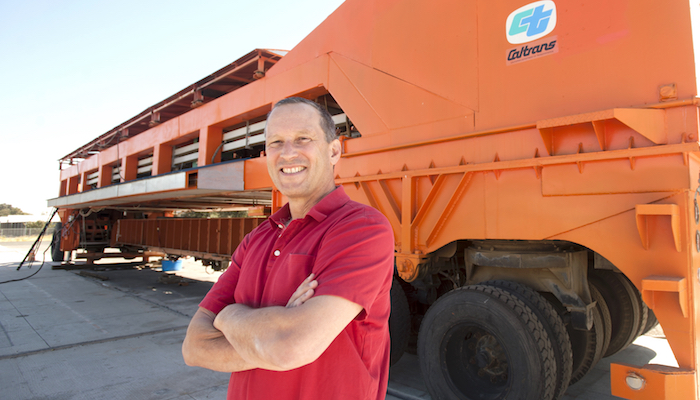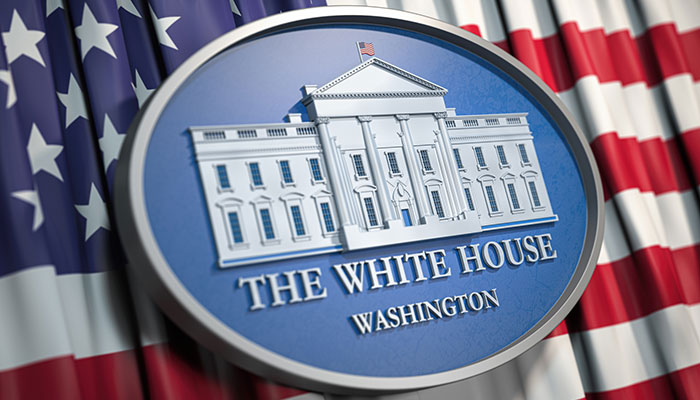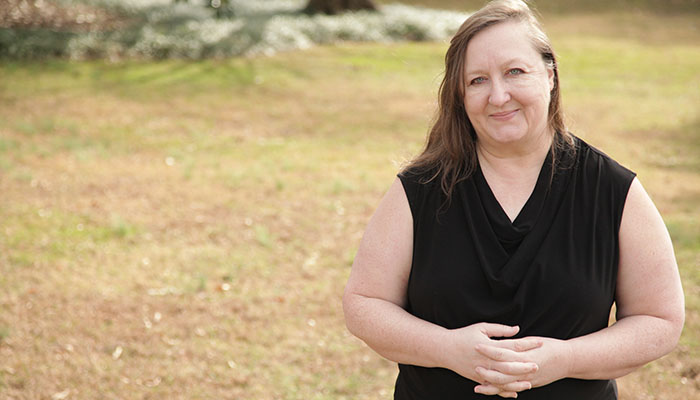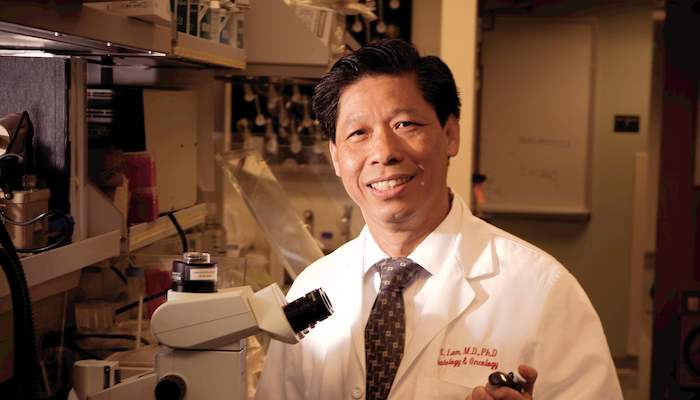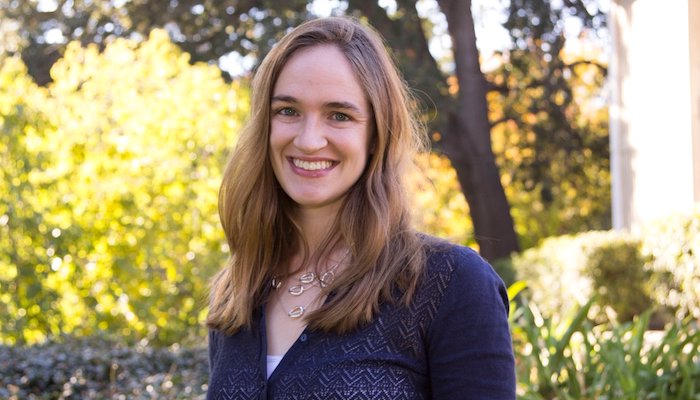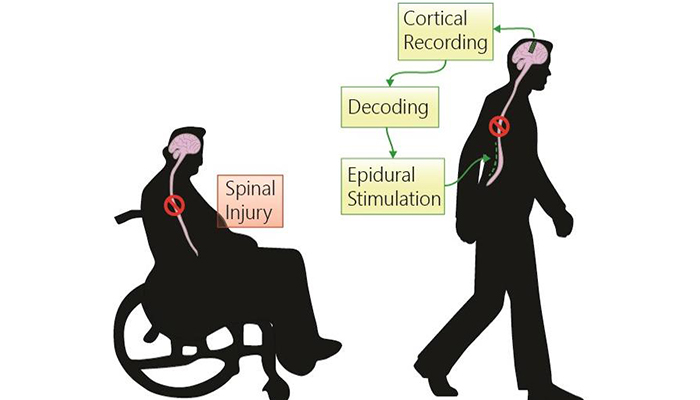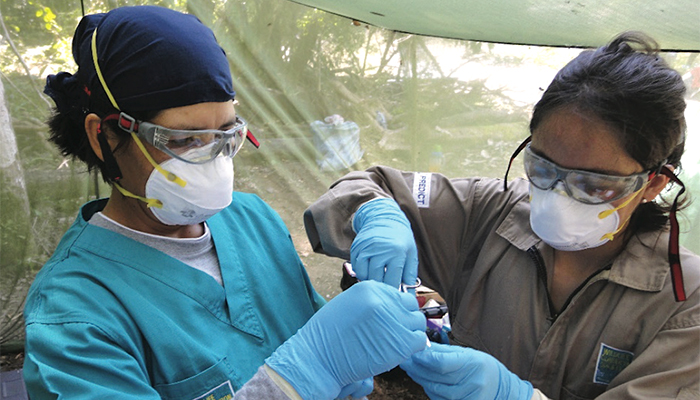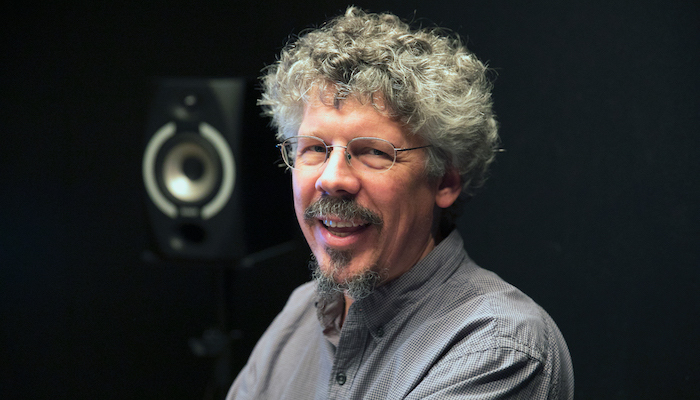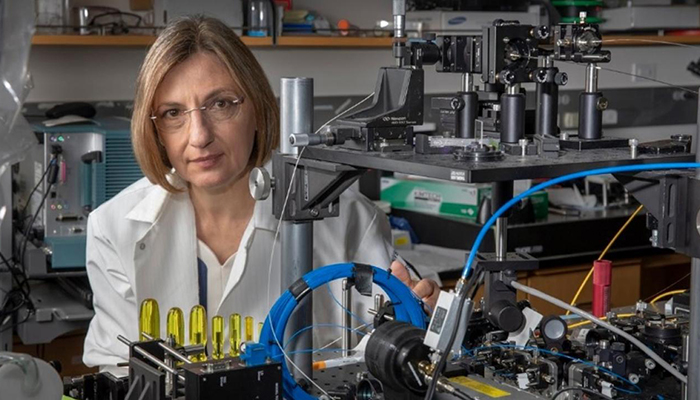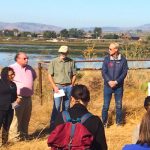UC Davis Sponsored Research Funding Increases to $783 Million
By Lisa Howard
The University of California, Davis, received $783 million in external research funding for fiscal year 2016-17, up $23 million from the previous year. UC Davis remained fourth overall among University of California campuses, which received a combined total of $6.08 billion from all external sponsors during fiscal year 2016-17, about 1 percent above the previous year.
“It’s clear that public agencies and private companies are depending on UC Davis’ innovative spirit and expertise to help solve some of the world’s biggest challenges,” said Chancellor Gary S. May.
Federal government remains top source of funding
Awards from the federal government again topped the list for 2016-17, totaling $384 million, but were down slightly from $391 million the previous year. The U.S. Department of Health and Human Services accounted for the largest source of federal funding with $221 million in awards, up from $213 million in 2015-16. The next highest federal awards were from the National Sciences Foundation at $40 million and the Department of State at $32.6 million.
Funding from the state of California made up a significant portion of the awards at $160.6 million, down slightly from the previous year’s award of $170 million. Businesses grants totaled $61.5 million, and higher education grants increased by $10 million to $41 million.
Top awards tackle infrastructure, public health
A program that will help improve California’s infrastructure, specifically California roads, received the largest university grant during fiscal year 2016-17. Programs that address public health issues made up other top awards, including tracking cancer data for use in research, identifying and responding to viruses that have the potential to create global pandemics, reducing illness and mortality from tobacco, and improving nutrition for low-income Californians.
$29.6 million for ‘Partnered Pavement Research Center 2017-2020’ from the California Department of Transportation
The UC Davis Pavement Research Center works collaboratively with the California Department of Transportation on research, development and implementation of a wide range of pavement technology, management, cost and environmental topics. This three-year contract includes projects in improved pavement design methods, performance-related specifications for construction, recycling of pavement materials and waste tires, development and implementation of systems to collect environmental data and assess sustainability, materials and construction specifications for quieter and smoother pavement, and avoidance of early construction failures. The contract also includes enhancements to the Caltrans pavement asset management system for selection of maintenance and rehabilitation timing and to the life cycle cost analysis system for comparison of treatment type alternatives. Principal investigator: John T. Harvey; co-principal investigators: David J. Jones and Jeremy D. Lea.
$26 million for ‘California Cancer Registry’ from California Department of Public Health
Since 2012, the UC Davis Institute for Population Health Improvement has partnered with the California Department of Public Health to run the California Cancer Registry, or CCR, one of the world’s leading resources for population-based data on cancer. The award is used to support the California Cancer Reporting and Epidemiologic Surveillance (CalCARES) Program. CalCARES conducts the day-to-day operations of the statewide registry and promulgates a number of cancer surveillance reports each year. CalCARES staff members also conduct population-based research about cancer.
Founded in 1988, the CCR collects information about almost all cancers diagnosed in California — over 4 million cases to date, with more than 175,000 new cases are added annually. The data in the registry are used to develop strategies and policies for the prevention, treatment and control of cancer, and have been the cornerstone of a large amount of research that has advanced knowledge about cancer over the years. Numerous UC and other investigators use data from the CCR in their research. Principal investigator: Kenneth W. Kizer.
$20.5 million for ‘Emerging Pandemic Threats Program 2 PREDICT-2’ from U.S. Agency for International Development
The multi-institutional PREDICT initiative provides rapid detection and response to emerging viruses such as Ebola and SARS that move among people, wildlife and livestock. The program currently operates in more than 30 countries around the world. The project is part of USAID’s Emerging Pandemic Threats program and is led by the UC Davis One Health Institute in the UC Davis School of Veterinary Medicine. The implementing partners are the United States Agency for International Development, Wildlife Conservation Society, EcoHealth Alliance, Metabiota and the Smithsonian Institution. Principal investigator: Jonna Mazet.
$14.4 million for ‘California Tobacco Control Program’ from California Department of Public Health
The UC Davis Institute for Population Health Improvement, in partnership with the California Department of Health, has operated the internationally acclaimed California Tobacco Control Program, or CTCP, since 2012. Originally established in 1989 after passage of Proposition 99, the CTCP seeks to improve the health of all Californians by reducing illness and premature death attributable to the use of tobacco products. The CTCP has helped to dramatically reduce the use of tobacco in California, which now has the second lowest rate of smoking among all states. Through leadership, experience and research, the highly successful CTCP empowers statewide and local health agencies to promote health and quality of life by advocating social norms that create a tobacco-free environment. The funds are used to, among other things, develop and support a wide range of community-based programs to accomplish these purposes. Principal investigator: Kenneth W. Kizer.
$10 million for ‘University of California CalFresh Nutrition Education Program’ from the U.S. Department of Agriculture through an agreement with the California Department of Social Services and Food and Nutrition Service
The University of California CalFresh Nutrition Education program has served California’s Supplemental Nutrition Assistance Program – Education (SNAP-Ed) communities for more than 20 years. In 2016, the program operated in 31 counties. Using a “school as the hub” model, 89 percent of UC CalFresh’s 116,505 direct education participants are preschool and school-aged youth. Adults receive food resource management education to promote food security at school and community sites. Direct education is delivered at 861 SNAP-Ed eligible sites. The integration of policy, systems and environmental change initiatives has contributed to establishing a bedrock of opportunities for communities to create long-lasting change — decreasing obesity and chronic disease rates — and increasing healthy lifestyles. Principal investigator: David C. Ginsburg.
Other significant awards include $8 million for the UC Davis Clinical and Translational Science Center, $7.6 million for the comparative effectiveness of breast cancer screening and diagnostic evaluation by extent of breast density, $7.3 million for support of the UC Davis Comprehensive Cancer Center, $6.8 million for the UC Davis Suisun Marsh Study, and $6.5 million for the UC Davis Center for Occupational and Environmental Health.
Where funds are awarded over several years, but distributed in yearly increments, the money is counted in the year received.
Awards by college and school
Based on principal investigators’ home departments, the UC Davis School of Medicine received the largest allocation of research awards at $298 million, followed by the College of Agricultural and Environmental Sciences at $162.5 million, the College of Engineering at $82 million, the School of Veterinary Medicine at $71 million, the College of Letters and Sciences at $48.3 million, and the College of Biological Sciences at $47 million.
Momentum for research remains strong
“UC Davis remains one of the top public research universities and remains on an upward trajectory,” said Cameron Carter, professor of psychiatry and psychology and interim vice chancellor for the Office of Research. “Our success in research funding reflects the hard work of a faculty who are the top scientists in their field, and of a university that is always striving to make discoveries that make a difference to the lives of Californians.”
Media contact(s)
Andy Fell, UC Davis News and Media Relations, 530-752-4533, [email protected]
AJ Cheline, UC Davis Office of Research, 530-752-1101, [email protected]
Media Resources
UC Davis Office of Research
UC Contracts & Grants FY2016-17 Funding Report (PDF)
UC Davis Receives $760 Million in Sponsored Research Funding
Latest News & Events

